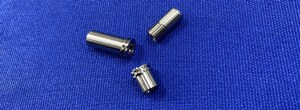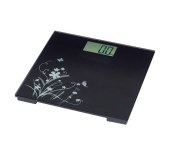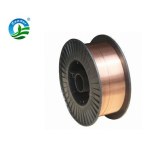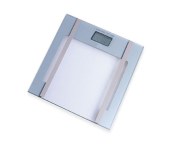Precision Titanium Machining
Precision Titanium Machining
Why is Titanium So Hard to Machine?
Titanium, as a challenging material, has a unique combination of properties in terms of high strength, high temperature, chemical reactivity, and elasticity. Due to its strength and tendency to harden during processing, it is difficult to cut using traditional machining techniques. Therefore, Swiss machining is the best choice in general.
Falcon Swiss machine shop is an expert in cnc machining titanium and can ensuresuccessful and efficient processing of cnc titanium materials. We have a deep understanding of the unique properties and challenges of titanium and have developed specialized techniques and tools to overcome these challenges. Contact us now for your edm titanium manufacturing needs!
Advantages of Titanium Materials in Swiss Machining
Titanium is a widely used material in Swiss machining due to its unique properties and numerous advantages. Here are some of the advantages of using titanium materials in Swiss machining:
High Strength-to-Weight Ratio: Titanium has an excellent strength-to-weight ratio, making it a popular choice for parts where weight reduction is critical. It is approximately 40% lighter than steel but has similar or greater strength.
Corrosion Resistance: Titanium has excellent corrosion resistance, particularly in harsh environments such as seawater or acidic environments. This property makes it a popular choice in the aerospace and marine industry. Using titanium materials in Swiss machining ensures long-lasting, corrosion-resistant parts.
Biocompatibility: Titanium is biocompatible, meaning it does not react with biological tissues or fluids. This property makes it an ideal choice for medical implants and devices. Swiss machining allows for the precise fabrication of complex medical components using titanium, ensuring a high degree of accuracy and compatibility with the human body.
High-Temperature Resistance: Titanium has a high melting point and can withstand high temperatures without deforming or losing strength. This property makes it suitable for use in high-temperature applications such as jet engines and gas turbines.
Low Thermal Expansion: Titanium has a low coefficient of thermal expansion, which means it expands and contracts minimally with temperature changes. This property is advantageous in applications where dimensional stability is critical, such as precision instruments or optical devices.
What is the Best Titanium for Machining?
In Swiss machining, different grades of titanium can be used based on the specific requirements of the application. The selection of titanium grade depends on specific application requirements, such as strength, corrosion resistance, and biocompatibility. Here are some Falcon commonly used titanium grades in Swiss machining include:
Grade 2: Commercially pure titanium with excellent corrosion resistance and high strength.
Grade 5 (Ti-6Al-4V): Titanium alloy with a balance of strength, corrosion resistance, and formability.
Grade 9 (Ti-3Al-2.5V): Titanium alloy with good weldability, high strength, and corrosion resistance.
Grade 23 (Ti-6Al-4V ELI): Variant of Grade 5 with extra-low interstitials, commonly used in medical applications.The best grade of titanium for machining precision depends on the specific requirements of the application and the machining process being used. However, Grade 5 and Grade 2 titanium are the most commonly used grades for Swiss machining due to their excellent properties and availability.
Typical Swiss Machined Titanium Components and Their Application
Swiss titanium machined parts find application in various industries due to their exceptional properties. Their superior properties make them an ideal choice for applications that demand strength, durability, corrosion resistance, and lightweight characteristics. Here are some common applications:
Aerospace components: turbine blades, structural components, and engine parts
Medical components: surgical instruments, dental implants, spinal implants, and orthopedic implants
Automotive components: engine valves, connecting rods, and suspension parts.
Consumer electronics: smartwatch cases, lens mounts and tripod sockets, audio components
Oil and Gas: Offshore drilling equipment components, valves, pumps
Optical components: mounts, telescope components
Equipment components: gears, screws, shafts.connectors
Surface Treatment for Swiss Machined Titanium
By applying surface treatments to titanium components in Swiss machining can enhance their properties and improve their performance in specific applications. The treatments help protect against corrosion, enhance wear resistance, improve lubricity, provide aesthetic options, promote biocompatibility, and facilitate adhesion or bonding, ultimately ensuring the quality and longevity of the Swiss machined titanium parts. Some common surface treatments for titanium include:
Bead Blasting
Anodizing
Powder coating
Passivation
Polishing
Plating
If you want to know more details of turning titanium, milling titanium, please visit our website.
Persona a contactar : con Fal, +18 5 89 03 24 77
Buen trato: comprar del vendedor
Por favor, lea nuestras condiciones de uso. También puede visitar nuestras preguntas frecuentes y ver nuestra información sobre los riesgos relacionados con la falsificación.
|
Esta página es acerca de los importadores y exportadores de Precision Titanium Machining Buscar en la categoria : Búsqueda/compra Buscar en la categoria : precision, machining, titanium |
Wednesday 04 June 2014
Max Capacity 150KG/330.8LB available for weight scale Unit KG/LB available for weight scale Automatic Power ON/OFF Yes Battery 3V CR2032 Lithium battery(1PCS) Resolution 100g Display size 74x30mm Product Size 280x230x22mm Color Box Size 290x240x32mm Equipped with...
Jerray Electric Appliance Co.,Limited
- 532500 - Kinglong square
- +85 2 23 69 69 00
Tuesday 11 November 2014
copper wire for saleER70S-6,co2 mig welding wires Shandong Zander Sourcing Company Limited 1.place of orginal: Shandong,China. 2.Brand name: Zander 3.Material: CO2 4.Diameter: 1.0mm 5.Standard: AWSER70S-6 6.Specifications : er70s-6 welding wire ;fast depositing speed;high...
Shandong Zander Resourcing Co.Ltd
- zanderwelding
- 250200 - zhangqiu
- 86 531 83231687
- 86 15552539082
Wednesday 04 June 2014
.Capacity: 3kg-150kg(3301b) .Graduation: 0.1kg/0.21b .High precision strain gauge technology .With tempered safety glass platform ·Button function .Low battery and over load indication .10 measured value memories for 10 users .Measure body fat%/water% by BMI principle .‘'Body fat...
Jerray Electric Appliance Co.,Limited
- 532500 - Kinglong square
- +85 2 23 69 69 00









